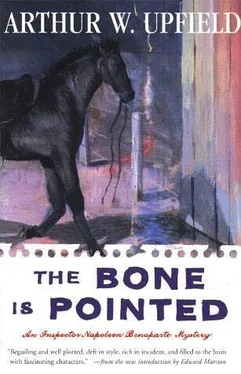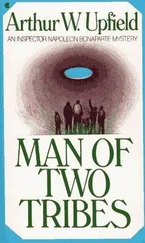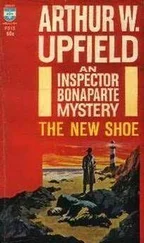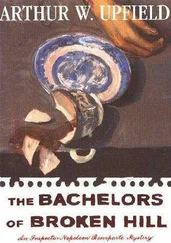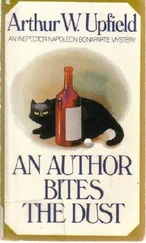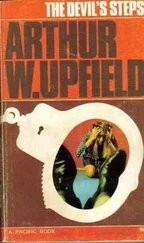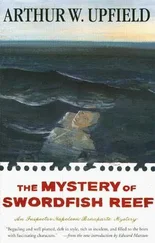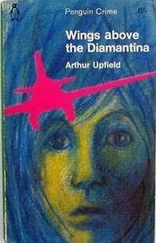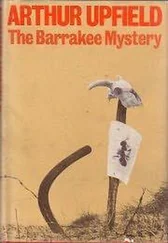Arthur Upfield - The Bone is Pointed
Здесь есть возможность читать онлайн «Arthur Upfield - The Bone is Pointed» весь текст электронной книги совершенно бесплатно (целиком полную версию без сокращений). В некоторых случаях можно слушать аудио, скачать через торрент в формате fb2 и присутствует краткое содержание. Жанр: Классический детектив, на английском языке. Описание произведения, (предисловие) а так же отзывы посетителей доступны на портале библиотеки ЛибКат.
- Название:The Bone is Pointed
- Автор:
- Жанр:
- Год:неизвестен
- ISBN:нет данных
- Рейтинг книги:3 / 5. Голосов: 1
-
Избранное:Добавить в избранное
- Отзывы:
-
Ваша оценка:
- 60
- 1
- 2
- 3
- 4
- 5
The Bone is Pointed: краткое содержание, описание и аннотация
Предлагаем к чтению аннотацию, описание, краткое содержание или предисловие (зависит от того, что написал сам автор книги «The Bone is Pointed»). Если вы не нашли необходимую информацию о книге — напишите в комментариях, мы постараемся отыскать её.
The Bone is Pointed — читать онлайн бесплатно полную книгу (весь текст) целиком
Ниже представлен текст книги, разбитый по страницам. Система сохранения места последней прочитанной страницы, позволяет с удобством читать онлайн бесплатно книгу «The Bone is Pointed», без необходимости каждый раз заново искать на чём Вы остановились. Поставьте закладку, и сможете в любой момент перейти на страницу, на которой закончили чтение.
Интервал:
Закладка:
The courageous Lowther persisted.
“The matter concerning Inspector Bonaparte is one of life and death, sir.”
“Life and death!” shouted Colonel Spendor. “Aren’t we all alive to-day and dead to-morrow? What the devil’s the matter with you this morning? Blast you, Lowther, you must be sickening for something.”
“Maybe, sir, but I would urge you to see Superintendent Browne. I wouldn’t dare to urge it, but the Superintendent stressed the importance of the matter.”
Colonel Spendor sighed as though he had held his breathing for five minutes. Again he looked directly at his secretary.
“It’s well for you, Lowther, that I’m a meek and tolerant man,” he said, without sign of humour. “I’ll see Browne. Send him in.”
The Officer in Charge of the Criminal Investigation Branch was waiting in the outer office. A large man in his early fifties, Browne looked precisely what he was-a bulldog. Long before he could reach the Colonel’s desk he was asked, firmly:
“What the devild’you want to interrupt me at my routine work for? You know I never grant interviews before I clear my desk. Sit down-there.”
A pudgy pink forefinger indicated the chair placed opposite the Chief Commissioner.
“Thank you, sir. When you have heard me you will probably be glad that I insisted on seeing you so early,” Browne said, before sitting down. “I have had a personal letter from Sergeant J. M. Blake, stationed at Opal Town. Mrs Blake is related to my wife, and on that score Sergeant Blake has written privately to me instead of through the ordinary official channels. You will remember, sir, that Inspector Bonaparte went to Opal Town several weeks ago to investigate a disappearance.”
“Yes, yes! Get on with it. What’s it all about?”
“I’ll read you Sergeant Blake’s letter. He writes:
Dear Harry-It is only after much hesitation that I am writing to you on a subject that ought probably to be dealt with officially. On the other hand to write officially might get me into hot water because my position is very awkward; and it might be thought that I had no right to interfere in what concerned your Branch and about an officer in your Branch who is my superior. So please understand that I am writing privately and not as a policeman.
Here are certain facts and certain opinions concerning D.-I. Bonaparte now investigating the disappearance of a man named Jeffery Anderson.
When D.-I. Bonaparte began his investigation, five months had passed since Anderson disappeared. He came to believe that the local tribe of blacks had had something to do with it, because some of them kept watch on him and used feathers on their feet to prevent him knowing it.
On 19 October one or more members of the tribe pointed the bone at D.-I. Bonaparte when he was asleep on the veranda of an old hut, leaving at his side a ball of grass gum in which were embedded a number of his discarded cigarette ends, this being a kind of notice of the boning. Shortly afterwards D.-I. Bonaparte complained of being unable to sleep at night, of his skin being irritated by pricking, and of pains in his liver and kidneys. Then, he got so that he was unable to retain food.
When I suggested that he give up the case, pro tem, and return to Brisbane, he raved at me and said he wouldn’t think of giving up the case until he had finalized it, that he had had no failures and he wasn’t going to have a failure this time. His nerves seemed shot to pieces, and he complained bitterly of having been put on leave without pay, and of being interfered with as though he were an ordinary policeman. Then he split open an envelope and wrote his resignation on it and gave it to me to forward. When he wasn’t looking, I dropped it into the lunch fire.
On subsequent dates when I saw him he appeared increasingly worse. He is unable to retain food, and his strength is being sapped, but his mind is as keen as ever and his determination to finalize his case, or die in the attempt, is unshaken. Kate has cooked special food for him which I have taken out every evening, but D.-I. Bonaparte is unable to retain it although he feels hungry.
His illness is similar to what is called the Barcoo sickness, but for several reasons I don’t think it is that. He hasn’t been long enough outback this time to have contracted the Barcoo sickness. The sickness came immediately after the boning. And there is no pain in the liver and kidneys of the sufferer from the Barcoo sickness.
When I suggested that I take a hand and try to discover which of the blacks had done the boning, D.-I. Bonaparte would not hear of it. Nor would he allow me to interview a Mr John Gordon who has great influence over the blacks, arguing that should he have to pull in Mr Gordon he would be embarrassed by the fact of Mr Gordon’s having acted on his behalf. You understand, D.-I Bonaparte took me into his confidence only after I had promised to respect it and do nothing without his permission.
I am writing to you without his permission, and I don’t feel too good about it. But, as Ida says, if D.-I. Bonaparte should die before he winds up his case we would feel responsible, and the police heads might hold it against me. Anyway, we both like D.-I. Bonaparte, and his present condition of health is felt by us as a personal matter.
I think that D.-I. Bonaparte was boned, and that he is not suffering from the Barcoo sickness. A lot of ignorant people would laugh at the very idea, but I’ve heard things, and Mr Lacy, of Karwir, tells ofbonings that have come within his experience. Then again, the local blacks are not de-tribalized. TheGordons have done and are doing everything in their power to keep white influence from destroying the Kalchut blacks, so that these people still practise their ancient customs and initiation rites.
You may or may not know that the actual act of pointing the bone is only show. The thing lying behind it, that does the killing, is the mental power of thought transference, the organs of the victim reacting in accordance with the thought-suggestions received from the executioners. D.-I. Bonaparte, being a half-caste, is more liable to be affected by this magic than a white man would be. And in Mr Lacy’s experience even a white man was boned to death.
Miss Lacy and her father, as well as myself, have urged D.-I. Bonaparte to retire from his case and see a doctor. But theLacys don’t know of the boning and D.-I. Bonaparte argues that, since he was boned, no treatment for the Barcoo sickness would be any good. He says that the boning is being carried on to force him to give up his case, and that if he completes it, or if he consents to retire (which he won’t) the boning will stop and he will automatically recover.
The point is that he won’t retire, and it looks as though he may die before he can finish his investigation. Doctors would be unable to cure him. The arrest of the entire Kalchut tribe, besides going against D.-I. Bonaparte’s wishes, would not have the effect of stopping the boning; moreover it would be next to impossible, for at Opal Town there is not nearly sufficient jail accommodation.
Well, Harry, there are the facts. You will understand my position. I know something of D.-I. Bonaparte’s investigation, and I don’t think he has a chance of finishing this job. Only this evening when I was out there to see him he had barely the strength to get on his horse. All he can take is brandy and water. He can’t go on long like that. It seems to me that the only thing to do is to remove him to Brisbane by force.
Superintendent Browne looked up from the letter and encountered the wide eyes of his chief. “Well, what do you think, sir? Gastric trouble or black magic?”
Colonel Spendor had become remarkably passive.
“Causes don’t matter two hoots, Browne,” he replied. “It’s the effects we have to combat. We have to fight the effects and to save Bonaparte for years of service to the State. Blast him, Browne! We both like the fellow; we both acknowledge his remarkable gifts and charm of manner, and now we’ve to take off our hats to him for his pertinacity and courage. Hang it, I’d sooner lose you than him.”
Читать дальшеИнтервал:
Закладка:
Похожие книги на «The Bone is Pointed»
Представляем Вашему вниманию похожие книги на «The Bone is Pointed» списком для выбора. Мы отобрали схожую по названию и смыслу литературу в надежде предоставить читателям больше вариантов отыскать новые, интересные, ещё непрочитанные произведения.
Обсуждение, отзывы о книге «The Bone is Pointed» и просто собственные мнения читателей. Оставьте ваши комментарии, напишите, что Вы думаете о произведении, его смысле или главных героях. Укажите что конкретно понравилось, а что нет, и почему Вы так считаете.
